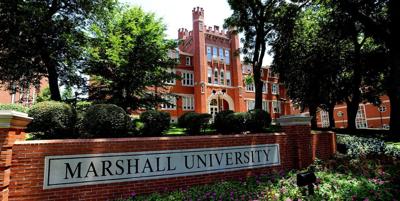
CHARLESTON – The Trump administration officially is reversing actions it took earlier this year against a Marshall University graduate student whose legal status in the United States had been unlawfully terminated.
Under the agreement announced this week by the American Civil Liberties Union of West Virginia, the administration is reversing the actions it took against the student and will not repeat them.
“This status removal should never have occurred in the first place,” ACLU-WV Legal Director Aubrey Sparks said. “There are specific reasons under the law for which an administration may revoke a student’s ability to study in this country, and none of those reasons were present in this case.
“This was clearly just another example of the Trump administration’s animosity for all immigrants. We are relieved for our client that he can put this matter behind him.”
In April, the Trump administration began restoring the status of thousands of international students, including an ACLU-WV client each at Marshall and WVU, who had been unlawfully targeted. The students’ legal statuses and revoked visas now are back in good standing. They are able to resume attending classes, according to letters from their schools.
On April 18, the ACLU-WV filed its suit on behalf of Marshall University graduate student Shival Nilesh Vyas, who had received an email saying his F-1 visa was being revoked. Five days later, U.S. District Judge Robert C. “Chuck” Chambers issued his memorandum opinion and order.
“During a time when students are supposed to be focusing on final exams, celebrating their accomplishments and searching for work opportunities, S.V. received an email … which threw his world into disarray,” the ACLU said of its April 18 filing on behalf of Vyas. “He later learned the action was being taken because he was ‘identified in a criminal records check.’”
In 2020, Vyas was charged with a misdemeanor traffic violation of operating under the influence in Indiana while studying at Purdue. He was sentenced to probation, which was terminated early as the result of good behavior and compliance.
Sparks says the government has no authority to consider that misdemeanor in terminating his visa, and even if the state did have that authority it would not be a lawful justification.
On April 24, WVU student Sajawal Ali Sohail, a 25-year-old computer science major from Pakistan, filed a lawsuit with ACLU-WV.
Sohail received an email April 10 informing him his records with the Student and Exchange Visitor Information System had been terminated and his visa had been revoked because he appeared in a criminal database.
However, Sohail has never been convicted of a crime – he and his family were actually the victims of one.
In 2023, WVU police called Sohail in for questioning related to an investigation into his tuition payments. As it turned out, Sohail’s father had been duped by a scammer who offered to front the money for Sohail’s tuition. His father repaid the man as agreed, but it turned out the scammer had used stolen credit cards to make the initial payment.
Although Sohail initially was charged with the crime, the charges were dismissed and a judge ruled that he and his family were victims, not perpetrators. His family also helped federal law enforcement track down the real perpetrator.
“This has been an incredibly stressful time for me,” he said in a press release from the ACLU-WV. “I am losing my hair due to stress, I could not sleep in my own house for fear of getting arrested and deported.
“I am a good student from a good family, and I don’t deserve this. All my family and I have wanted since day 1 is to do everything the right way, the legal way, and I just want to complete my degree here in the U.S.”
U.S. District Court for the Southern District of West Virginia case number 3:25-cv-00261 (Vyas), U.S. District Court for the Northern District of West Virginia case number 1:25-cv-00040 (Sohail)






